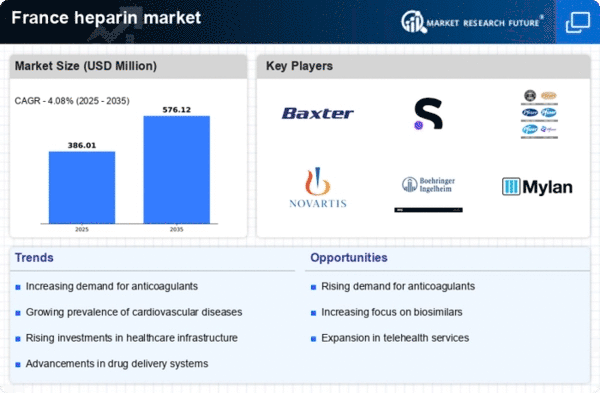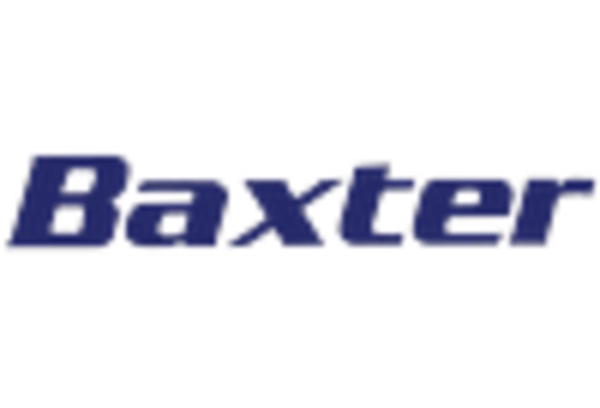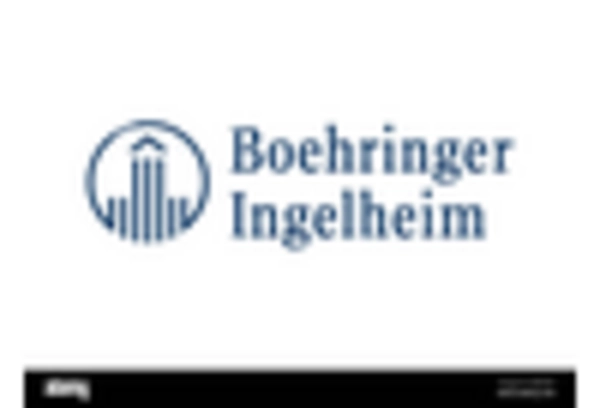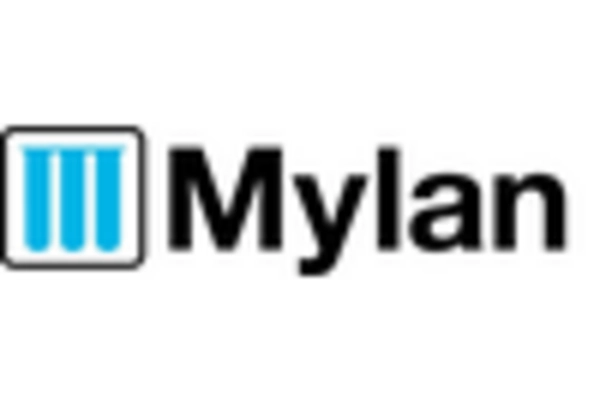Growing Geriatric Population
The aging population in France is a notable driver for the heparin market. As the demographic shifts towards an older age group, the incidence of age-related health issues, including thromboembolic disorders, is expected to rise. The geriatric population often requires anticoagulant therapy to manage these conditions effectively. Current estimates suggest that by 2030, nearly 25% of the French population will be over 65 years old, which could lead to a substantial increase in the demand for heparin. Healthcare providers are likely to adapt their treatment protocols to accommodate this demographic shift, further propelling the heparin market as they seek effective solutions for managing anticoagulation in older patients.
Advancements in Medical Technology
Technological advancements in medical devices and treatment protocols are likely to influence the heparin market in France. Innovations such as automated dosing systems and improved delivery methods enhance the efficacy and safety of heparin administration. These advancements not only improve patient outcomes but also streamline hospital workflows, making heparin a preferred choice among healthcare professionals. The integration of technology in healthcare is projected to grow, with investments in medical technology reaching €5 billion in France by 2026. This trend suggests that as hospitals adopt more sophisticated technologies, the demand for heparin will likely increase, further driving the heparin market.
Increasing Cardiovascular Diseases
The prevalence of cardiovascular diseases in France appears to be a significant driver for the heparin market. As the population ages, the incidence of conditions such as deep vein thrombosis and pulmonary embolism is likely to rise. This trend necessitates the use of anticoagulants like heparin, which are essential in managing these conditions. According to recent health statistics, cardiovascular diseases account for approximately 30% of all deaths in France, underscoring the urgent need for effective treatment options. Consequently, healthcare providers are increasingly relying on heparin, thereby propelling the growth of the heparin market. The demand for heparin is expected to continue its upward trajectory as awareness of cardiovascular health increases among the French population.
Rising Awareness of Preventive Healthcare
There is a growing awareness of preventive healthcare measures among the French population, which appears to be a crucial driver for the heparin market. As individuals become more proactive about their health, the demand for preventive treatments, including anticoagulants, is likely to rise. Educational campaigns and health initiatives focusing on the risks associated with thrombosis and other related conditions are contributing to this trend. The French government has allocated €1.2 billion for public health campaigns aimed at reducing cardiovascular risks, which may lead to increased prescriptions of heparin. This heightened awareness is expected to bolster the heparin market as more individuals seek preventive solutions.
Regulatory Support for Anticoagulant Therapies
Regulatory bodies in France are increasingly supportive of anticoagulant therapies, which may positively impact the heparin market. Recent policy changes have streamlined the approval process for new heparin formulations and delivery methods, facilitating quicker access to innovative treatments. The French National Agency for Medicines and Health Products Safety has implemented guidelines that encourage the development of safer and more effective anticoagulants. This regulatory environment is likely to foster competition and innovation within the heparin market, as pharmaceutical companies are incentivized to invest in research and development. As a result, the availability of diverse heparin products may increase, catering to a broader range of patient needs.
















